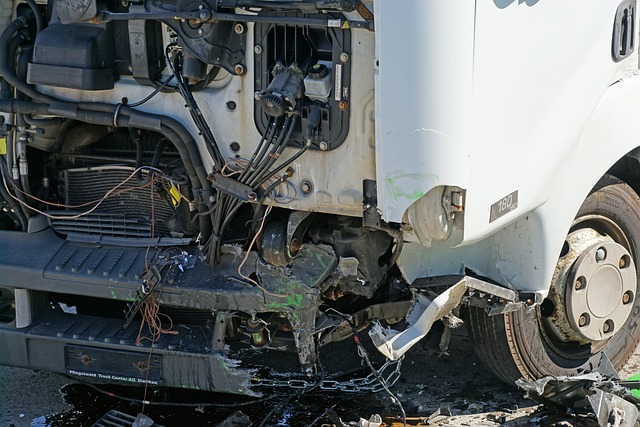General Liability Insurance is a crucial safety net for businesses, protecting against unexpected claims of bodily injury or property damage. It covers accidents involving customers, employee injuries, and property damage caused by business operations, products, or completed work. Key components include tailored coverage limits, clear policy scope, legal defense costs, and carefully excluded events. Business owners should thoroughly understand exclusions to avoid gaps in coverage. When selecting a provider, consider specialization, financial stability, reputation, customer service, and transparent communication. Evaluating risk potential is vital for determining the need for GL insurance, which offers protection against legal battles, damages, and settlements, preserving business assets, reputation, and financial stability. Prompt claims reporting enhances settlement outcomes and efficient defense strategies.
General Liability Insurance is a cornerstone of risk management for businesses, protecting against unforeseen lawsuits and claims. This comprehensive guide breaks down essential aspects of general liability coverage, from understanding key terms to selecting the right provider. We explore who needs this protection, common exclusions, evaluating business risks, and real-world scenarios where it matters most. By the end, you’ll grasp the vital role of general liability in safeguarding your business against financial chaos.
Understanding General Liability Insurance: A Comprehensive Overview

General Liability Insurance is a crucial coverage for businesses, offering protection against claims of bodily injury or property damage occurring on their premises. It’s designed to safeguard against unexpected incidents that could lead to significant legal liabilities and financial losses. This insurance acts as a shield, covering legal fees, settlement costs, and damages awarded in such cases.
The policy typically covers various scenarios, including accidents involving customers, injuries to employees, or damage to third-party property caused by operations, products, or completed work. By purchasing General Liability Insurance, businesses can navigate these risks with peace of mind, ensuring they’re prepared for potential claims and reducing the impact on their financial stability.
Who Needs General Liability Coverage and Why?

Everyone from small business owners to large corporations needs General Liability coverage, as it protects against a wide range of potential risks and liabilities. This type of insurance is essential for any entity that provides goods or services to others, as it shields against claims of bodily injury or property damage that may arise during normal operations. Whether you run a retail store, a restaurant, or offer professional services, General Liability Insurance acts as a safety net by covering legal fees and settlement costs if a customer or third party files a lawsuit.
By purchasing General Liability coverage, businesses can mitigate the financial impact of accidents, incidents, or mishaps that could lead to legal disputes. It provides peace of mind, ensuring that unexpected events won’t cripple your business with substantial legal bills and damages. This protection is especially crucial for small businesses, which often have limited resources and may struggle to recover from significant liabilities without adequate insurance.
Key Components of a General Liability Policy

A General Liability (GL) insurance policy is a cornerstone for businesses, offering protection against a wide range of claims and lawsuits. The key components of such a policy are designed to cover different potential risks and liabilities that businesses may face. One of the core elements is the coverage limit, which determines the maximum amount an insurer will pay out if a claim is valid. This limit varies based on the business’s size and risk profile.
Another critical aspect is the policy’s scope, which outlines the types of incidents and claims it covers. Common inclusions include property damage, personal injury, and bodily harm resulting from accidents or incidents related to the insured’s operations. Additionally, GL policies often provide legal defense costs, ensuring businesses have representation in court if sued, regardless of the outcome. Exclusions, which limit coverage for certain events or circumstances, are also a crucial part of these policies, allowing insurers to manage risk and define the parameters of protection.
Common Exclusions to Watch Out For

When considering General Liability Insurance, it’s crucial to be aware of common exclusions that could significantly impact your coverage. These exclusions are stipulations within the policy that state what isn’t covered. They can vary between insurance providers, but some frequent exceptions include events involving intended or anticipated harm, such as self-inflicted injuries or damages intentionally caused by the insured. Additionally, activities with known hazards, like extreme sports or hazardous operations without proper safety measures, might not be eligible for general liability coverage.
Understanding these exclusions is essential for managing expectations and ensuring adequate protection. Policies may exclude liabilities arising from product defects, work performed by contracted parties, or damage occurring over a prolonged period. Business owners should carefully review their policy documents to identify these exceptions and make informed decisions about additional coverage options tailored to their specific operations.
How to Choose the Right Liability Insurance Provider

When selecting a General Liability insurance provider, the first step is to assess your business needs and understand the risks associated with your operations. Different industries face unique challenges; therefore, it’s crucial to pick an insurer that specialises in your field. This ensures coverage aligns precisely with your specific business activities.
Additionally, review the provider’s financial stability and market reputation. Check their claims-paying ability, customer service track record, and any complaints or reviews. A reliable General Liability insurance company should offer transparent communication, a user-friendly claims process, and competitive pricing without compromising on coverage quality.
Evaluating Your Risk and Claims Potential

Evaluating your risk and claims potential is a crucial step in understanding the need for general liability insurance. As a business owner, it’s essential to consider the types of risks you face daily, from accidents on your premises to product defects or even personal injury claims. General Liability (GL) insurance protects against these unforeseen events by covering legal fees, settlement costs, and other associated expenses.
Assessing your industry, operations, and customer base is key. High-risk industries like construction or healthcare may require more robust GL coverage due to increased exposure to claims. Similarly, businesses handling hazardous materials or with a history of incidents should seriously evaluate their potential liability. By understanding these risks, you can tailor your insurance policy to provide adequate protection, ensuring financial security and peace of mind.
The Role of General Liability in Business Protection

General Liability plays a pivotal role in safeguarding businesses from potential risks and financial losses. This type of insurance is designed to protect against claims of bodily injury or property damage that may arise during business operations. By providing coverage for legal fees and damages, General Liability acts as a shield, ensuring businesses can navigate through legal battles without incurring substantial costs.
It’s not just about legal protection; General Liability also covers various scenarios, including personal and advertising injuries, which can result from product defects, incomplete projects, or even slip-and-fall accidents on business premises. This comprehensive coverage is essential for any entity seeking to foster a safe environment, maintain customer trust, and safeguard its financial stability in an unpredictable market.
Real-World Scenarios: When Does General Liability Kick In?

General Liability insurance protects businesses from a wide range of claims, covering incidents that occur within their operations. It kicks in when an individual or entity suffers harm or damage due to the business activities. For instance, if a customer slips and falls on your premises, injuring themselves, general liability coverage can help pay for medical expenses and legal fees incurred from the resulting lawsuit. Similarly, if a product you manufacture or distribute causes injury or property damage, this insurance step in to cover settlements or judgments against your company.
Additionally, general liability insurance can protect businesses from claims of negligence, such as failure to maintain a safe environment, defamation, or personal and advertising injuries. It’s crucial for safeguarding business assets, reputation, and financial stability by providing a safety net against unexpected events that could lead to significant legal repercussions.
Claims Management and the Importance of Prompt Reporting

General Liability Insurance includes claims management as a key aspect, which involves efficiently handling and resolving legal claims against an individual or business. Prompt reporting is crucial in this process; when a claim occurs, immediate notification to the insurance provider is essential. This swift action ensures that the insurer can assess the situation, gather necessary information, and initiate the claims settlement process without delay.
The importance of prompt reporting cannot be overstated, as it can significantly impact the outcome of a claim. It allows the insurance company to defend their policyholder effectively, gathering evidence and witness statements while the details are still fresh. This proactive approach not only helps in resolving claims faster but also demonstrates the insurer’s commitment to supporting their clients in times of need, fostering trust and ensuring a positive relationship between the insured and their provider.
